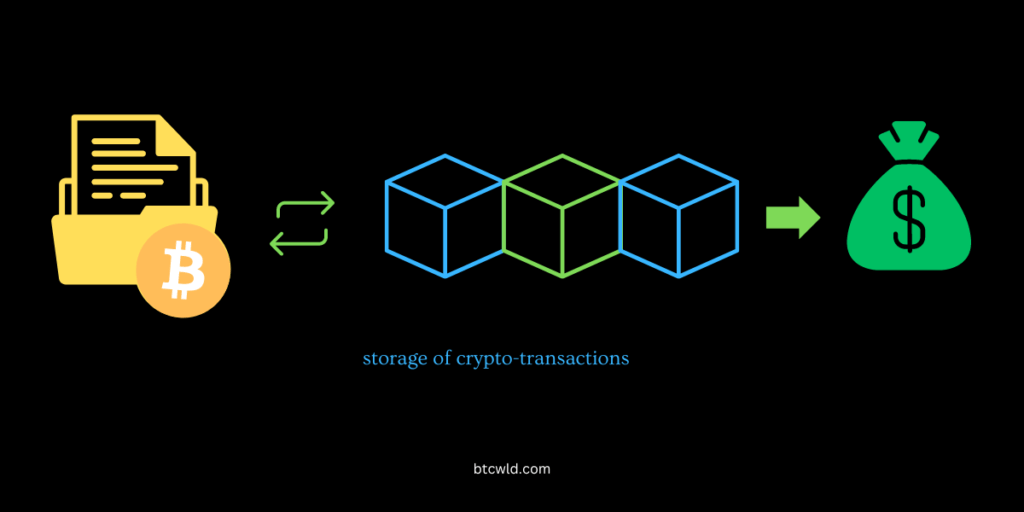Table of Contents
What is the term for the database that stores cryptocurrency transactions?
The term for the database that stores cryptocurrency transactions is called as blockchain. A blockchain is a distributed ledger shared among the nodes on a network. As the each node stores a copy of the ledger, it makes the records on the network secure and decentralized.

The data in the blockchain is stored in the form of blocks. Each block has a definite size and holds the transaction records. Once the transaction gets executed on the blockchain, it is immutable and can not be reversed.
Where are cryptocurrency transactions stored?
Cryptocurrency transactions are stored on the blockchain network. It is a peer-to-peer network of nodes that maintain transaction information in groups of blocks.
Instead of storing data at one place, blockchain stores data across multiple computer system. The data on blockchain is stored in the form of blocks. These blocks are linked together with the cryptography techniques. One of the important feature of the blockchain is immutability.
Also read this post: Top 10 AI Crypto Coins-[Don’t Miss]
It means once the data is organized in blocks over the network, it can not be changed. Further, there is not any need of the intermediaries for data entry which makes the transactions on the blockchain trustable. Besides cryptocurrencies, blockchain is used in decentralized finance (DeFi), Non Fungible Tokens (NFTs) and smart contracts.
What is the database where all cryptocurrency transactions are recorded?
The database where all cryptocurrency transactions are recorded is known as blockchain. A blockchain serves as a distributed ledger shared among a network of nodes. Its primary function is to securely and decentrally record transactions. Though blockchains are mostly associated with cryptocurrencies, they have broader applications beyond cryptocurrencies.
How are transactions stored in blockchain?
Transactions on the blockchain are stored in the form of blocks. Just like we enter and store information in a spreadsheet blockchain stores data similarly. However, the blocks over the blockchain are connected with cryptography.
